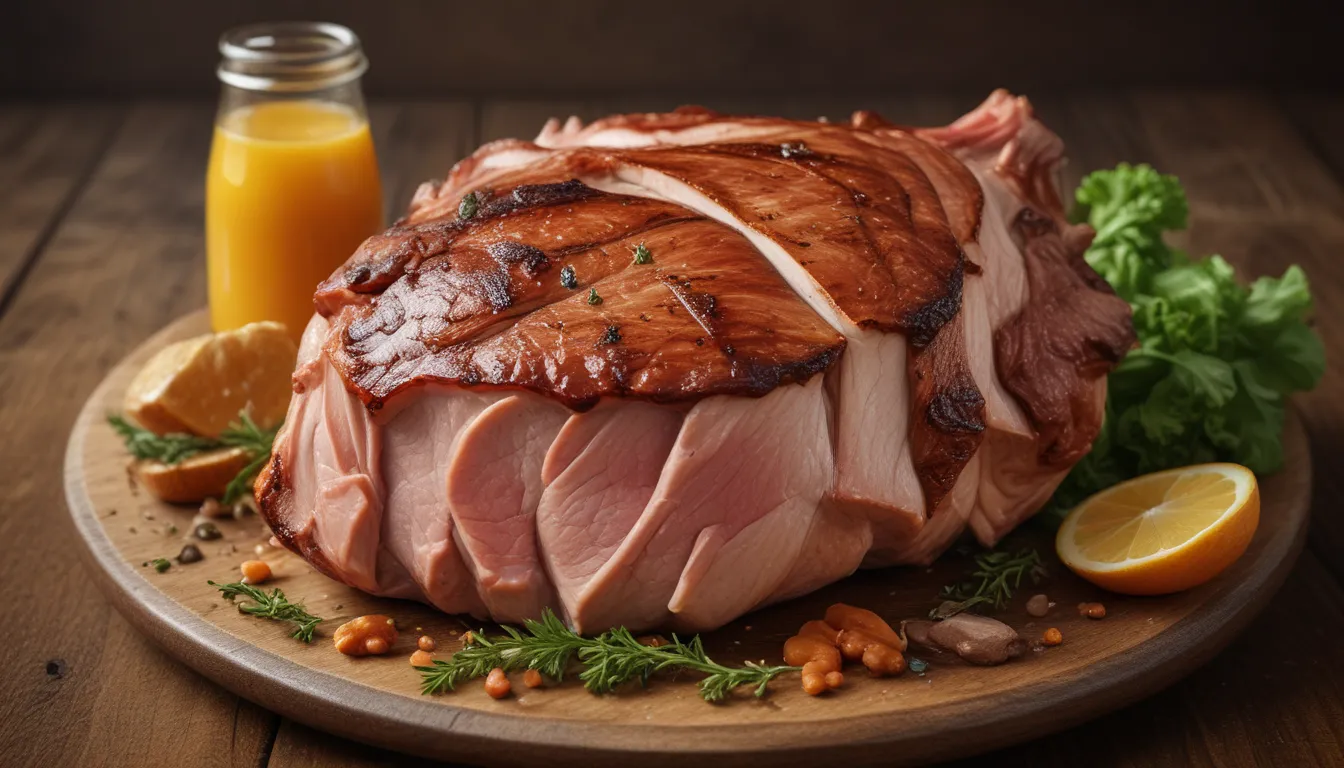The pictures in our articles might not always show exactly what the text is talking about. We use these images to make the article more interesting and eye-catching. They are there to add to the text, but not to replace it or show every detail.
If you're a food enthusiast or just someone curious about the nutritional value of pork shoulder, you've come to the right place. Pork shoulder, also known as pork butt or Boston butt, is a versatile and flavorful cut of meat that can be used in various dishes. In this article, we will explore the many health benefits of pork shoulder and provide you with essential information to help you make informed choices when incorporating it into your diet.
Understanding the Nutritional Profile of Pork Shoulder
Pork shoulder is not only delicious but also packed with essential nutrients that can benefit your overall health. Let's dive into some key nutritional facts about this popular cut of meat.
High Protein Content
Protein is crucial for building and repairing tissues in the body. A 3-ounce serving of pork shoulder provides approximately 22 grams of protein, making it an excellent protein source for your diet.
Rich in Vitamins and Minerals
Pork shoulder is a good source of vitamins B6 and B12, which are essential for energy production, brain function, and red blood cell formation. It also contains important minerals like iron, zinc, phosphorus, and selenium, which support various bodily functions, including immune health and bone strength.
Healthy Fats and Nutrients
While pork shoulder does contain fat, it's essential to note that not all fats are unhealthy. This cut of meat contains monounsaturated fats, which are heart-healthy and can help reduce bad cholesterol levels when consumed in moderation. Additionally, pork shoulder provides vitamin D, essential for bone health and immune function.
Complete Protein Source
Pork shoulder contains all nine essential amino acids, making it a complete protein source that supports muscle growth and repair.
Other Essential Nutrients
Apart from vitamins B6 and B12, pork shoulder also contains riboflavin (vitamin B2), niacin (vitamin B3), choline, thiamin, and magnesium, all of which play a crucial role in various metabolic processes, energy production, and overall well-being.
Incorporating Pork Shoulder into Your Diet
Cooking Methods for Pork Shoulder
To ensure tenderness and flavor development, pork shoulder is best cooked slowly over low heat. Consider using a slow cooker or oven to prepare delicious dishes like slow-cooked roasts, pulled pork, and stews.
Portion Sizes and Dietary Considerations
While pork shoulder can be a part of a healthy diet, it's essential to moderate portion sizes and ensure it fits within your overall dietary balance. A standard serving size is around 3 ounces, but individual needs may vary based on factors like age, sex, activity level, and dietary goals.
Health Considerations
When consuming pork shoulder, ensure it is handled and cooked properly to minimize the risk of foodborne illnesses. Cook it to a safe internal temperature, and practice good hygiene in food preparation to maintain food safety.
Choosing Quality Pork Shoulder
Sustainable Farming Practices
When purchasing pork shoulder, look for products from farms that follow sustainable and ethical farming practices. By choosing meat from such sources, you can ensure the welfare of animals and the environment.
Conclusion
In conclusion, pork shoulder is a flavorful and nutrient-rich cut of meat that can be a valuable addition to your diet. Its high protein content, essential vitamins, and minerals make it a versatile ingredient for various culinary creations. Remember to choose quality pork shoulder from sustainable sources and enjoy its delicious taste in moderation.
Frequently Asked Questions
Is pork shoulder high in calories?
Pork shoulder contains calories, but the exact amount depends on the cooking method and specific cut. Moderating portion sizes and considering overall dietary balance is crucial.
Can pork shoulder be part of a healthy diet?
Yes, pork shoulder can be part of a healthy diet when consumed in moderation and as part of a balanced meal that includes nutrient-rich foods.
What is the recommended serving size for pork shoulder?
A standard serving size is around 3 ounces, but individual needs may vary based on personal factors and dietary goals.
Are there any health risks associated with consuming pork shoulder?
As with any meat product, proper handling and cooking of pork shoulder are essential to minimize the risk of foodborne illnesses. Cook it to a safe internal temperature and practice good hygiene in food preparation.
With its rich flavor and nutritional benefits, pork shoulder can be a fantastic addition to your culinary repertoire. Whether you're looking to boost your protein intake or enjoy a delicious meal, consider incorporating pork shoulder into your diet for a wholesome and satisfying experience. Remember to choose quality meat from sustainable sources and enjoy the goodness of pork shoulder in a balanced and mindful way.






